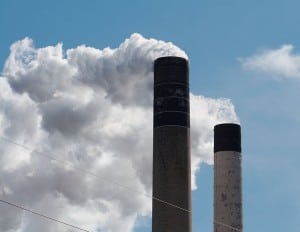Climate change
-
Markets
Gas-Heavy ISO-New England Braces for Steep Influx of Wind, Solar, Storage
While it is currently highly dependent on natural gas generation today, about 95% of ISO-New England’s (ISO-NE’s) interconnection request queue—a proposed total capacity of 20.9 GW—comprises wind, solar, and battery projects. That clearly indicates that developers in New England’s wholesale market “are looking to take advantage of state incentives, declining technology costs, and revenues from […]
-
Gas
MHPS Secures First Order for Hydrogen-Capable J-Series Gas Turbines
Mitsubishi Hitachi Power Systems (MHPS) has bagged an order for the first advanced-class gas turbines designed to transition to renewable hydrogen fuel from Utah’s state-owned Intermountain Power Agency (IPA). MHPS’s Lake Mary, Florida–based subsidiary MHPS Americas (MHPSA) on March 10 said that the contract for two M501JAC power trains are the first in the industry […]
-
News
Fund Manager to Banks: Stop Financing Coal Plants
A UK-based hedge fund billionaire is urging large central banks to end their funding of coal-fired power plant projects. Chris Hohn, founder of TCI Fund Management and a champion of causes to combat climate change, expressed his concerns in letters published March 1 to the Bank of England, the European Central Bank, Barclays, HSBC, and […]
-
News
Economics Hamper Power Improvements in Puerto Rico
Puerto Rico has been battered by natural disasters in recent years, with hurricanes Irma and Maria in 2017, and a series of earthquakes in late December 2019 and early January 2020, causing widespread damage
-
News
Tech Guru’s Plan—Fight Climate Change with Nuclear Power
There’s widespread debate over whether nuclear power should be a player in the path toward addressing climate change. Industry analysts say nuclear is key to zero-emission power generation; even some environmentalists agree, though others point to the issue of disposal of nuclear waste, and concerns about the safety of reactors. Those concerns have led some […]
-
News
The New Due Diligence: Understanding the Climate-Related Vulnerabilities of Our Infrastructure
Rich Sorkin, CEO of Jupiter Intelligence As the reality of climate change begins to soak in, enterprises, organizations and governments around the globe are trying to get a handle on the economic and social implications of rising temperatures and sea levels. One area most immediately threatened by climate change—and one that hasn’t received nearly enough […]
-
Fuel
ITC Probing Economic Impact of Renewable Goals, Imports to New England
Responding to a request from a Democrat-led U.S. House committee, the federal International Trade Commission (ITC) is investigating how New England’s increasing renewable targets are economically affecting the region, and what role renewable imports play in meeting those commitments. The ITC, an independent, nonpartisan and quasi-judicial federal agency that also provides fact-finding as it relates […]
Tagged in: -
Fuel
Engineering Group: American Gas Turbines Will Remain Relevant But Need Advancement
Given current trends, the U.S. gas turbine industry is set to play a critically important role in power generation, aircraft propulsion, and the oil and gas industry “for decades to come,” but it could benefit from prioritized research and development (R&D) and technological leadership, a new report from the National Academies of Sciences, Engineering, and […]
-
Climate change
Dominion Latest to Set Net-Zero Carbon Goal
Richmond, Virginia-based Dominion Energy has joined a growing list of power companies establishing net-zero emissions targets. The company, which has more than 7 million electricity and natural gas customers in 18 states, said it intends to reach its carbon dioxide and methane reduction goals by 2050. Under the net-zero framework, the company is committing to […]
Tagged in: -
News
Energy Northwest Study Makes a Case for SMRs in Future Power Mix
Deep decarbonization of the U.S. Northwest can be achieved at “manageable” costs by 2045, but only if utility agency Energy Northwest secures zero-emitting firm capacity, such as by relicensing Columbia Generating Station—the sole nuclear plant in the region—and building small modular reactors (SMRs), a new study suggests. The study by San Francisco-based consulting group Energy […]










